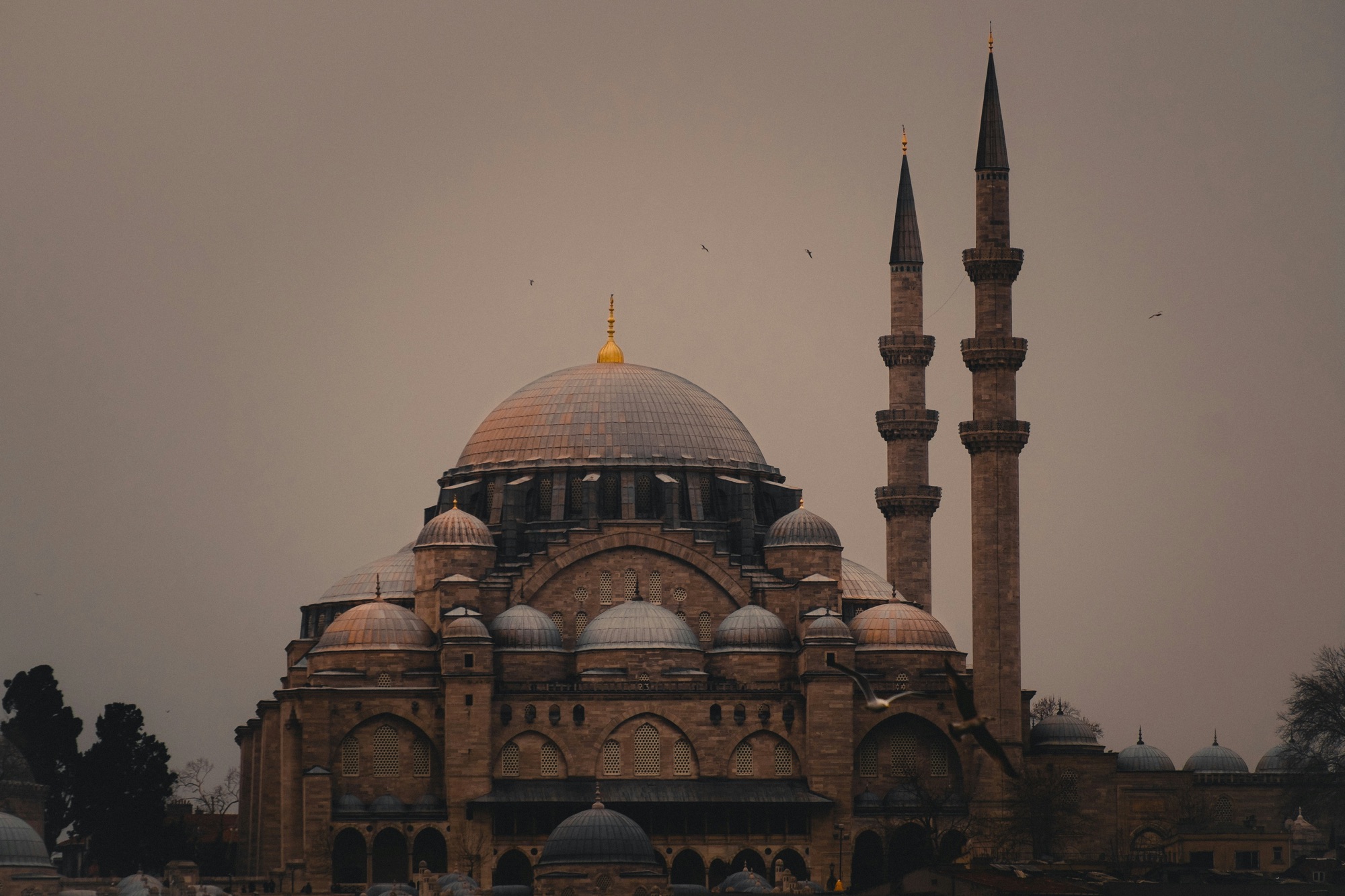Türkiye, previously known globally as Turkey, has long held a unique position as a bridge between Europe and Asia, both geographically and culturally. With a deep historical legacy as the successor state to the mighty Ottoman Empire, Türkiye today is a regional power with growing influence in global politics, economy, military, and culture. This nation of over 85 million people is not just a key player in the Middle East but also plays a strategic role within NATO, balancing its regional aspirations with its global alliances.
In this comprehensive article, we will explore Türkiye’s economic, cultural, and military power, and how it has leveraged its strategic location and resources to emerge as a critical player in regional geopolitics and on the world stage.
Economic Power: Türkiye’s Dynamic and Diversified Economy
Türkiye’s economic journey from an agrarian-based system to a diversified industrial powerhouse is nothing short of remarkable. Over the past few decades, Türkiye has transformed its economy, becoming a hub for trade, industry, and technology between Europe, Asia, and the Middle East. Despite facing challenges such as inflation and currency devaluation, Türkiye is ranked among the world’s 20 largest economies by nominal GDP, with a wide array of industries that include manufacturing, agriculture, technology, and services.
1. Industrial Growth and Diversification
Türkiye’s economy is diversified across sectors such as automotive, textiles, electronics, machinery, construction, and tourism. These industries have propelled the country into one of the world’s leading export-oriented economies. The automotive industry, for instance, is a major sector, with companies like Ford Otosan, Tofaş, and Hyundai Assan manufacturing a significant portion of vehicles for both domestic consumption and export to Europe and the Middle East.
Textiles and clothing are also important sectors, making Türkiye one of the largest textile producers in the world. Many of the world’s largest fashion retailers source their materials and products from Turkish manufacturers due to Türkiye’s modern production facilities and its proximity to Europe.
The country’s construction industry has also played a vital role in boosting economic growth. Turkish construction firms are involved in infrastructure projects across the globe, particularly in Africa, Central Asia, and the Middle East. Large-scale infrastructure projects like Istanbul’s new airport and major bridges and tunnels reflect Türkiye’s domestic ambitions for development, as well as its role in constructing global megaprojects.
2. Strategic Location and Trade
Türkiye’s geographic position as a bridge between Europe, Asia, and the Middle East gives it enormous strategic importance in global trade. The country controls the Bosphorus Strait, a key maritime chokepoint connecting the Black Sea to the Mediterranean Sea. This control gives Türkiye leverage over significant shipping routes for oil, natural gas, and other vital goods.
As a member of the G20 and a critical transit country for energy pipelines, Türkiye plays an important role in global energy markets. It serves as a key conduit for natural gas from the Caspian Sea and Central Asia to Europe through pipelines such as the Trans-Anatolian Natural Gas Pipeline (TANAP) and the Baku-Tbilisi-Ceyhan (BTC) pipeline.
Moreover, Türkiye has leveraged its strategic position to sign free trade agreements (FTAs) with numerous countries, facilitating trade with Europe, the Middle East, and Africa. The country’s economic ties with Europe are especially strong, as the European Union is Türkiye’s largest trading partner, even though Türkiye is not an EU member.
3. Tourism and the Services Industry
Türkiye is one of the world’s top tourist destinations, attracting over 50 million visitors annually in the years prior to the COVID-19 pandemic. Its appeal lies in its rich history, cultural heritage, natural beauty, and modern amenities. The city of Istanbul, with its blend of ancient and modern attractions, such as the Hagia Sophia, Topkapi Palace, and the bustling Grand Bazaar, remains a prime tourist magnet.
In addition to historical sites, Türkiye’s coastal regions along the Mediterranean and Aegean Seas—often referred to as the “Turquoise Coast”—are renowned for their pristine beaches and luxury resorts. Locations like Antalya, Bodrum, and Izmir are popular with tourists from Europe, Russia, and the Middle East.
The services sector, including finance, banking, and telecommunications, is another pillar of Türkiye’s economy. Istanbul, the country’s financial hub, is a crucial point of commerce for both domestic and international firms. Türkiye’s ambition to become a global financial center is supported by large-scale projects like the Istanbul Financial Center.
4. Challenges to Economic Stability
Despite its economic strengths, Türkiye faces significant challenges. High inflation, currency volatility, and rising external debt are some of the biggest hurdles the country faces today. The Turkish lira has lost significant value against the U.S. dollar over recent years, making imports more expensive and stoking inflation. As of 2023, inflation remains persistently high, reducing purchasing power for Turkish consumers and complicating efforts to stabilize the economy.
In addition, unemployment, particularly among the youth, remains a challenge, exacerbated by the economic slowdown caused by the pandemic and global economic uncertainties. Addressing these issues while maintaining investor confidence will be crucial for Türkiye’s future economic growth.
Moreover, Türkiye’s geopolitical ambitions and military engagements, such as its involvement in Syria and Libya, have put additional strain on public finances and may affect long-term economic stability. For Türkiye to fully capitalize on its economic potential, it must balance these external pressures with domestic economic reforms.
Cultural Power: The Influence of Turkish Heritage and Modern Soft Power
Türkiye’s cultural power is deeply rooted in its rich historical heritage as the seat of the Ottoman Empire and its role as a bridge between East and West. Today, Türkiye’s blend of ancient traditions and modern innovations has made it a significant force in cultural diplomacy, entertainment, and religious influence, enhancing its soft power across the world.
1. Historical Significance and Ottoman Legacy
As the successor state to the Ottoman Empire, Türkiye inherits a legacy that spans centuries of governance, architecture, and cultural exchange across Europe, Asia, and Africa. The Ottomans left an indelible mark on world history, influencing everything from politics and law to cuisine and art. Today, Türkiye draws on this heritage as a source of national pride and as a tool of soft power in regions that were once part of the Ottoman Empire.
The city of Istanbul, formerly known as Constantinople, remains a powerful symbol of Türkiye’s historical and cultural depth. Landmarks such as the Hagia Sophia, a UNESCO World Heritage site that has served as both a church and mosque, reflect Türkiye’s role as a meeting point between Christianity and Islam. The Topkapi Palace, once the seat of Ottoman sultans, continues to attract millions of tourists each year, drawing attention to Türkiye’s imperial past.
Beyond Istanbul, ancient cities like Ephesus, Troy, and Cappadocia are major attractions for international visitors, showcasing Türkiye’s diverse cultural heritage from the Greeks, Romans, and Byzantines, as well as the Ottoman Turks.
2. Global Reach of Turkish Television and Cinema
One of Türkiye’s most significant cultural exports in recent years has been its television dramas and films. Turkish series, known as “dizis”, have gained widespread popularity not only in the Middle East but also across Latin America, Eastern Europe, South Asia, and Africa. Shows like “Ertuğrul”, “The Magnificent Century”, and “Kara Sevda” have captivated audiences globally, creating a fanbase that stretches far beyond Türkiye’s borders.
The success of Turkish television is driven by its high production values, compelling storytelling, and the ability to appeal to a broad international audience. The popularity of these shows has also promoted Turkish culture, language, and tourism, as many fans seek to visit the places where their favorite series were filmed.
In cinema, Türkiye has produced internationally acclaimed films, with directors such as Nuri Bilge Ceylan gaining recognition at major film festivals like Cannes. Ceylan’s films, known for their introspective and philosophical themes, have contributed to the global prestige of Turkish cinema.
3. Turkish Cuisine and Cultural Diplomacy
Turkish cuisine, which is a blend of Middle Eastern, Mediterranean, and Central Asian flavors, is another significant aspect of Türkiye’s cultural influence. Dishes like kebabs, baklava, meze, and Turkish tea have become popular worldwide, and Turkish restaurants can be found in major cities across Europe, North America, and the Middle East. The growing popularity of Turkish coffee and Turkish delight has also contributed to Türkiye’s soft power through its culinary exports.
In addition to food, Türkiye promotes its culture through cultural diplomacy initiatives. The Yunus Emre Institute, named after the famous Turkish poet, has been established in various countries to promote Turkish language and culture. Through this network of cultural centers, Türkiye seeks to strengthen its soft power and improve its international image.
4. Religious Soft Power and Türkiye’s Role in the Muslim World
Türkiye’s religious influence is significant, especially given its historical role as the center of the Ottoman Caliphate. Although Türkiye is officially a secular republic, Islam plays an important role in the cultural identity of its population. Under the leadership of President Recep Tayyip Erdoğan, Türkiye has taken steps to enhance its religious soft power, particularly in the Muslim world.
Türkiye’s government has sponsored the construction of mosques and religious schools (madrasas) across Africa, Asia, and the Middle East, aiming to strengthen ties with Muslim-majority nations. Türkiye’s political and religious stance, especially on issues like Palestine, has also earned it significant support and admiration from many Muslim countries and communities worldwide.
At the same time, Türkiye’s unique blend of secular governance and Islamic identity makes it a model for many countries in the Muslim world that seek to balance religion with modern governance. This gives Türkiye considerable influence over religious discourse and political movements in regions such as North Africa, Central Asia, and the Middle East.
Military Power: Türkiye’s Strategic Military Strength and Global Ambitions
Türkiye’s military is one of the most formidable in the world, and it plays a central role in its regional and global ambitions. As a member of NATO, Türkiye’s military capabilities are critical to the alliance’s security, particularly on its southeastern flank, which borders volatile regions like Syria, Iraq, and the Caucasus. With a focus on modernization, self-reliance, and regional influence, Türkiye’s military power is a key component of its geopolitical strategy.
1. The Turkish Armed Forces: A Regional Military Power
Türkiye boasts one of the largest standing armies in NATO, with over 350,000 active personnel and around 400,000 reservists. This large, well-equipped force allows Türkiye to project power across its region and to respond to threats both internally and along its borders.
The Turkish Armed Forces (TAF) are structured into three primary branches: the Army, Navy, and Air Force. The country’s military capabilities are extensive, with advanced equipment that includes tanks, fighter jets, missile systems, and naval vessels. Türkiye’s Navy has become a key force in the Eastern Mediterranean, where disputes over energy rights and maritime boundaries have intensified in recent years.
As one of NATO’s most important members, Türkiye’s strategic location between Europe and the Middle East gives it considerable influence over regional security issues. The country’s proximity to conflict zones such as Syria, Iraq, and the Black Sea makes its military assets critical to NATO’s security planning and operations in the region.
2. Military Modernization and Indigenous Defense Industry
In recent years, Türkiye has embarked on an ambitious program to modernize its military and develop a domestic defense industry. By producing its own advanced military equipment, Türkiye aims to reduce its reliance on foreign suppliers and become a leading arms exporter. Companies like ASELSAN, TAI (Turkish Aerospace Industries), and ROKETSAN have developed a wide array of products, including drones, armored vehicles, fighter jets, and ballistic missiles.
Türkiye’s Bayraktar TB2 drones, in particular, have gained international recognition for their effectiveness in various conflicts, including those in Syria, Libya, and Nagorno-Karabakh. These drones have become a symbol of Türkiye’s growing defense industry and military capabilities.
The development of the TF-X fighter jet and the Altay main battle tank are other examples of Türkiye’s ambition to modernize its military. By focusing on domestic production, Türkiye aims to reduce its dependence on imports from the U.S. and Europe, especially in light of recent tensions with its NATO allies.
3. Regional Influence and Conflicts
Türkiye’s military power is a key element of its regional ambitions. The country has been deeply involved in several conflicts, most notably in Syria, where it has conducted multiple military operations to secure its borders and prevent Kurdish forces from establishing an autonomous region in northern Syria. These operations, including Operation Euphrates Shield and Operation Olive Branch, reflect Türkiye’s concerns about the rise of Kurdish militias along its southern border, which it views as a threat to its national security.
In Libya, Türkiye has backed the internationally recognized Government of National Accord (GNA), providing military support to help it repel forces loyal to General Khalifa Haftar. This intervention has increased Türkiye’s influence in the Eastern Mediterranean, where it seeks to assert its maritime rights and expand its access to offshore natural gas resources.
Türkiye’s involvement in the Nagorno-Karabakh conflict in support of Azerbaijan further demonstrates its growing assertiveness in the Caucasus region. By providing military aid, including drones, to Azerbaijan, Türkiye has strengthened its ties with its Turkic ally and asserted itself as a key player in the region.
4. Challenges and Geopolitical Tensions
Despite its growing military power, Türkiye faces several challenges on the geopolitical front. Its purchase of the Russian S-400 missile defense system has created friction with NATO, particularly the United States, which responded by removing Türkiye from the F-35 fighter jet program. This has raised concerns about Türkiye’s commitment to NATO and its long-standing alliance with the West.
Additionally, Türkiye’s assertive foreign policy has led to increased tensions with regional powers like Greece and Egypt, particularly over disputes in the Eastern Mediterranean. Türkiye’s claims to energy-rich waters and its aggressive exploration activities have brought it into direct conflict with these countries, threatening regional stability.
Moreover, Türkiye’s complex relationship with Russia—cooperating on some issues, like Syria, while competing on others—adds another layer of complexity to its foreign policy. Navigating these relationships while maintaining its military edge will be critical for Türkiye’s regional and global ambitions in the years to come.
Conclusion: Türkiye’s Rising Power and Global Influence
Türkiye’s influence is multifaceted, encompassing economic, cultural, and military power. Its economy, driven by a diversified industrial base, strategic trade links, and a growing tourism sector, has made it a significant player in regional and global markets. Despite facing challenges such as inflation and currency instability, Türkiye’s economic resilience and strategic location continue to underpin its global importance.
Culturally, Türkiye draws on its rich Ottoman heritage while embracing modern cultural exports like television dramas, cinema, and cuisine. These cultural tools enhance Türkiye’s soft power, allowing it to influence global narratives and strengthen its image abroad. Its role as a leading Muslim-majority country further enhances its cultural reach, particularly within the Muslim world.
Militarily, Türkiye is a key player in regional security, with one of the largest and most modern armies in NATO. Its ambitious military modernization program and involvement in regional conflicts demonstrate its growing assertiveness on the global stage. However, balancing its relationships with NATO, Russia, and regional rivals will be essential as it seeks to maintain its influence in a rapidly changing geopolitical environment.
As Türkiye continues to navigate the challenges and opportunities of the 21st century, its ability to leverage its economic strengths, cultural influence, and military power will determine its long-term role as a major global player.




